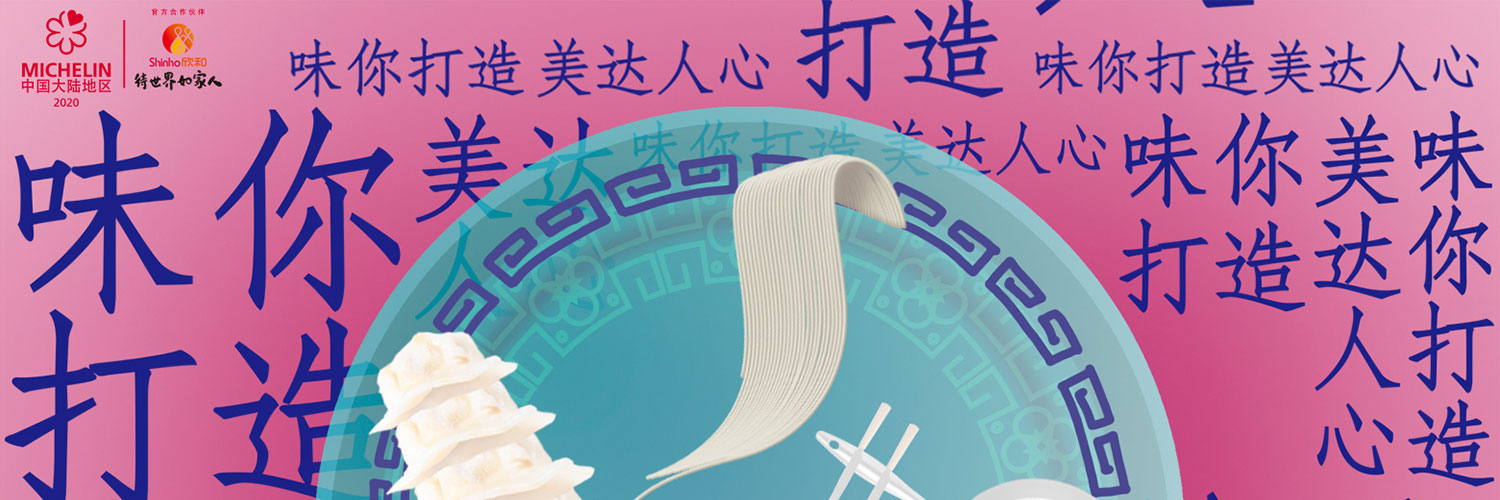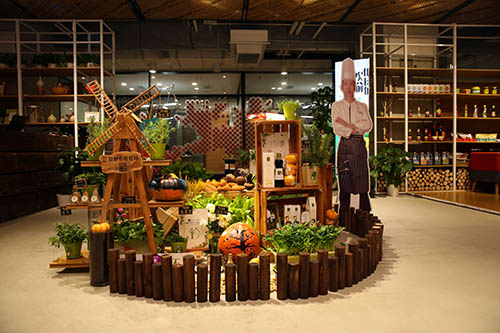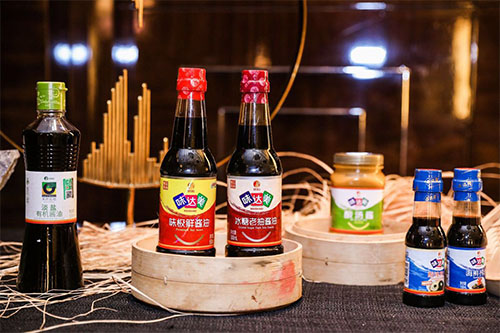Tradition and Innovations: WEI DA MEI in Beijing
Brand ActivityBeijing's food industry has grown into prosperity due to its unique combination of traditional and innovative influences. From royal dishes combining Han and Mongolia characteristics to delicate and beautiful modern Beijing food, every plate is a representation of their time. Beijing's chefs craft their recipes like artists, creating the perfect marriage of healthy modernity with traditional classics. In their exploration, beautiful (MEI) flavours (WEI) touches (DA) every eater's heart.
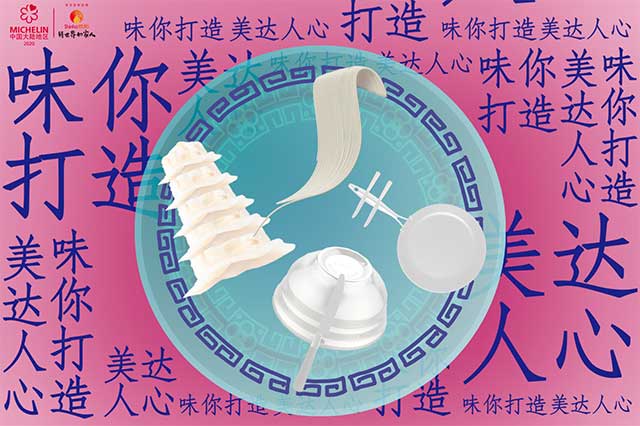
Li Dong
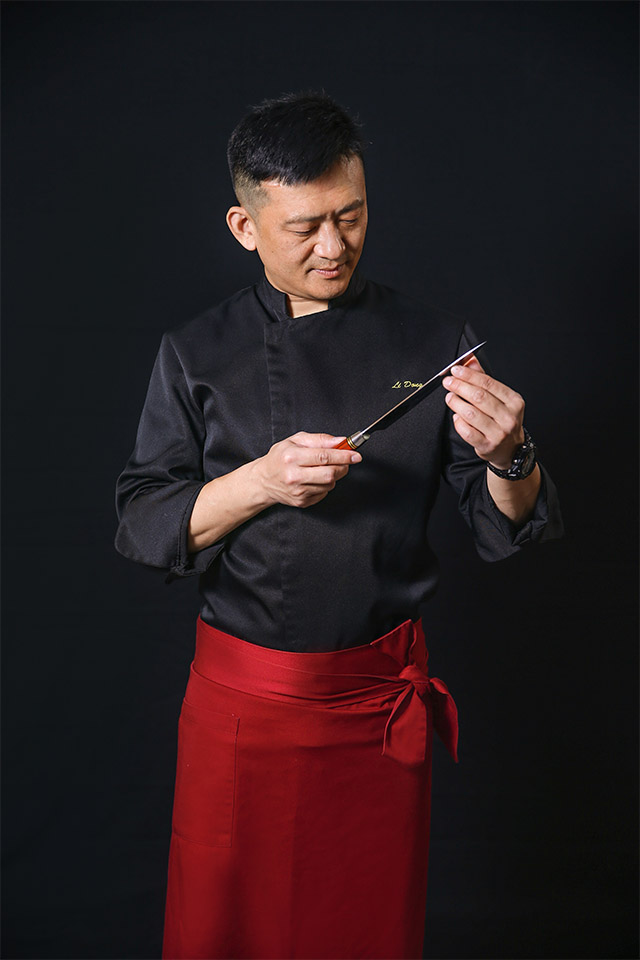
Li Dong is the executive chef for Chinese cuisines at The Opposite House in Beijing. He has his understanding of innovation: he believes innovative food is more about improved classic recipes. Chefs should hone their skills on basic techniques before realising their ideas and inspirations. He likes to travel, talks to old chefs and read books to get inspired.
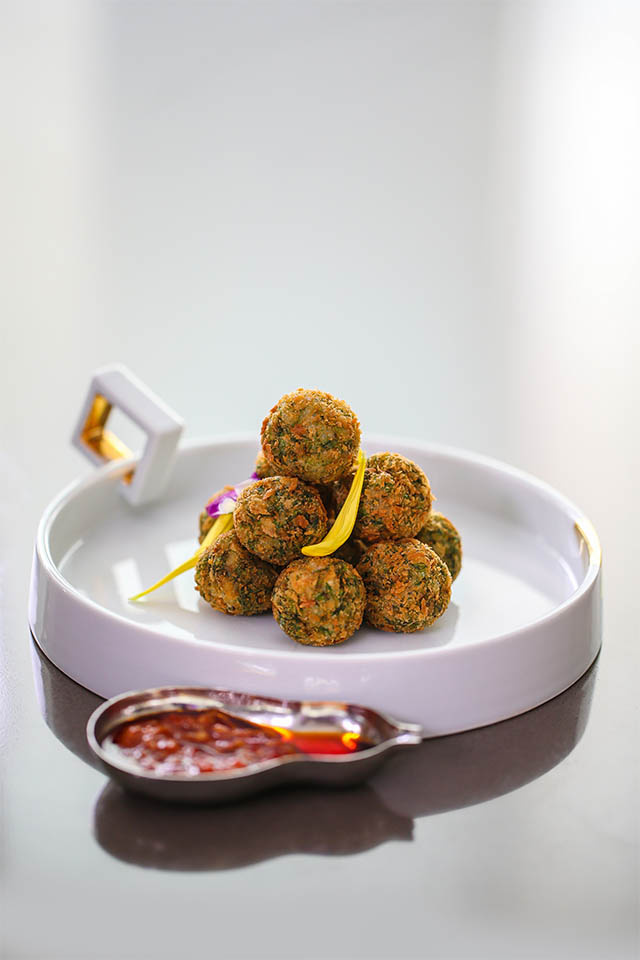
Fennel leaves and fish fritters is a dish inspired by Huaiyang cuisine classic garlic shoots fritters inspired. He created this dish when he was travelling in Dalian. The northerners love fennel leaves and often combines fennel and port to make dumpling fillings. He thought that garlic shoots have a stronger flavour, so he substituted it to fennel leaves, and use fish instead of pork because it is higher in protein. The meatballs are deep-fried to create a crispy outside layer. Taking consideration that fennel leaves are very moist, he coats the meatballs in starch liquid beforehand to lock in on the delicious juiciness.
Li Qiang
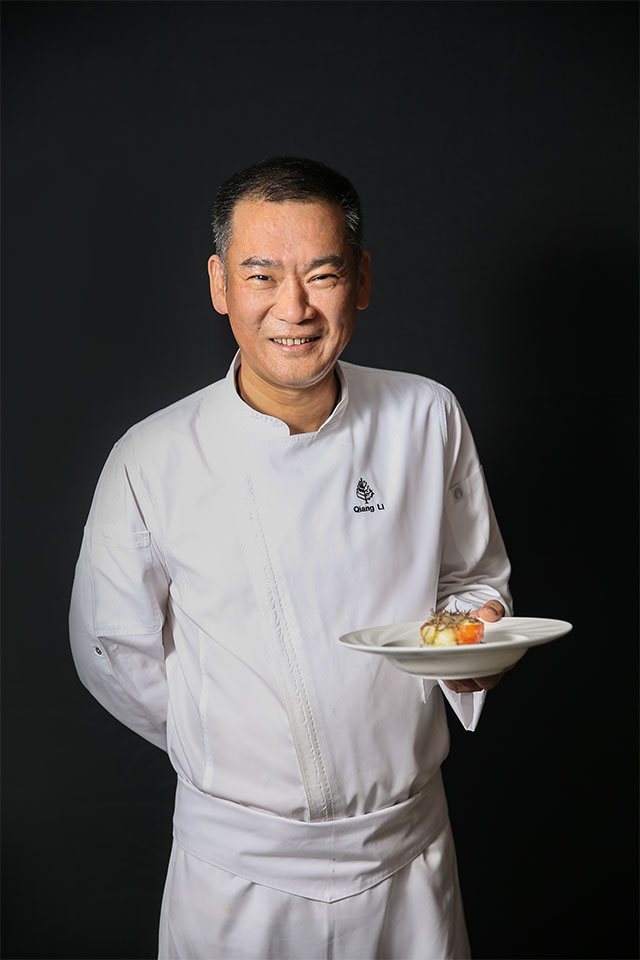
Li Qiang is the head chef of Four Seasons Hotel's Cai Yi Xuan. He is a true Tianjiner to his heart. When Li Qiang was 20 years old, he started to work in the kitchen cooking Chaozhou cuisine. He believes the flavour is at the centre of cooking: enhance what's already there and add what isn't. He uses different ingredients to create layers of textures in his dishes, which he thinks is his style of innovation.
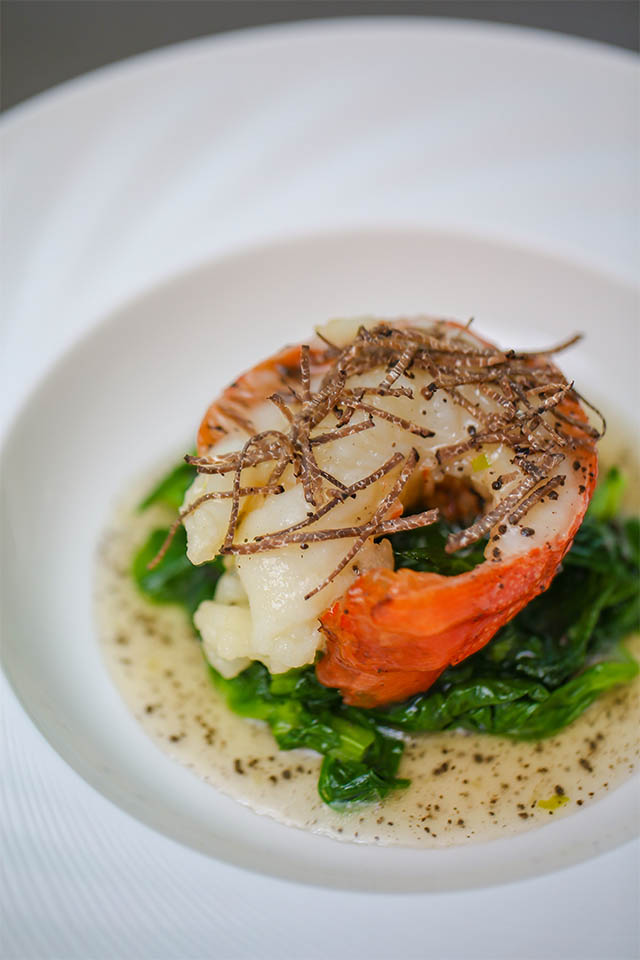
Li Qiang took China's traditional dish Lobster in Soup and added a foreign ingredient black truffle. Adding depths of flavours as well as rewaking an ancient classic.
Duan Yu
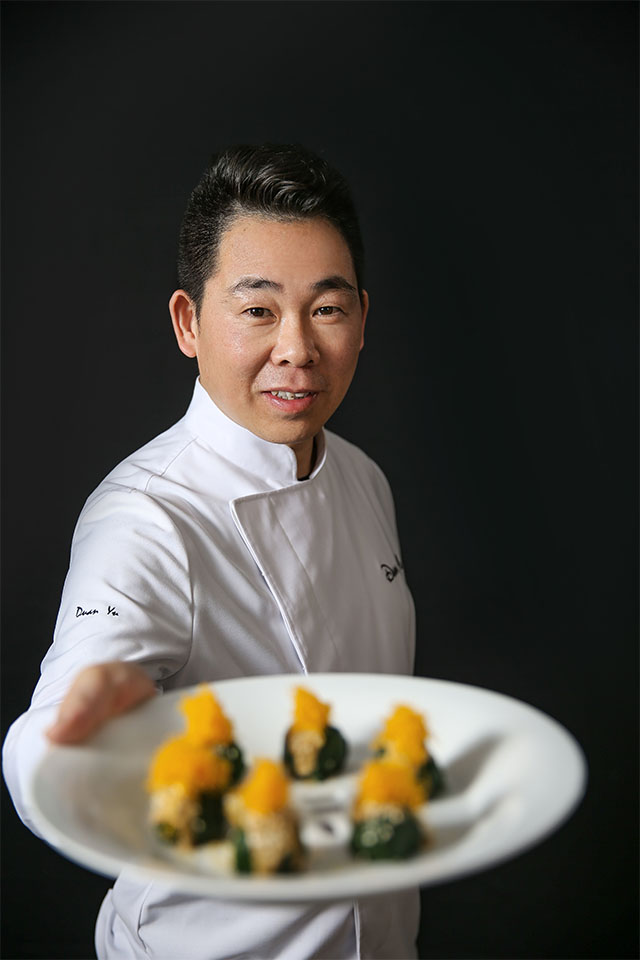
Duan Yu runs restaurant No.19 which specialises in modernised Beijing cookings. He is one of the leading force for innovation in the food scene up in the North. Modernised Beijing food is all about re-presenting classic dishes to suit modern, delicate tastes better. More often than not, the more classic a recipe is, the harder it is to innovate. A chef has to both respect creation but also stamp their style on to the plate. Most importantly, the great flavour has to be the utmost priority and cannot be lost sight of in their pursuit of innovation.
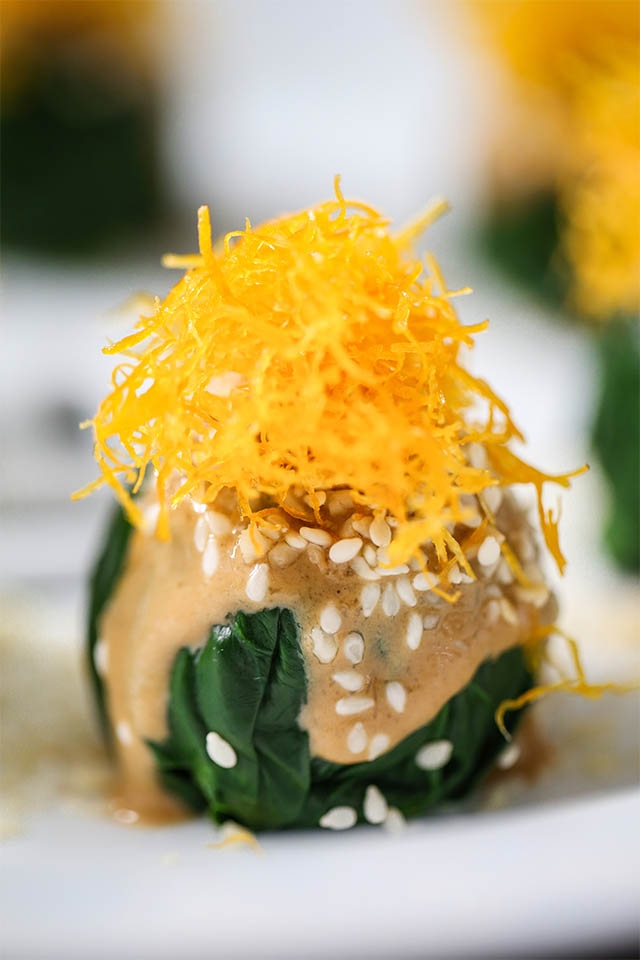
Duan Yu is from Henan. He found that a simple Spinach in sesame sauce is cooked in different ways in different regions. In He Nan, they neutralise oxalic acid in spinach that can create a bitter taste by adding some coriander to bring refreshing scent and more depth to the dish. Spring onion oil is also used instead of water when mixing the sesame sauce to add more creaminess to the mixture. Some shreds of spring onion and dried tofu add texture. Spinach is cut before mixing so they can soak up more flavours. The dish is also wrapped in large spinach leaves with sesame dressing and sweet potato shreds on top. It is a beautifully colourful dish that is full of surprises. To be more environmentally sustainable, only one ball of spinach is served per plate to reduce waste.
Wu Ruizhe
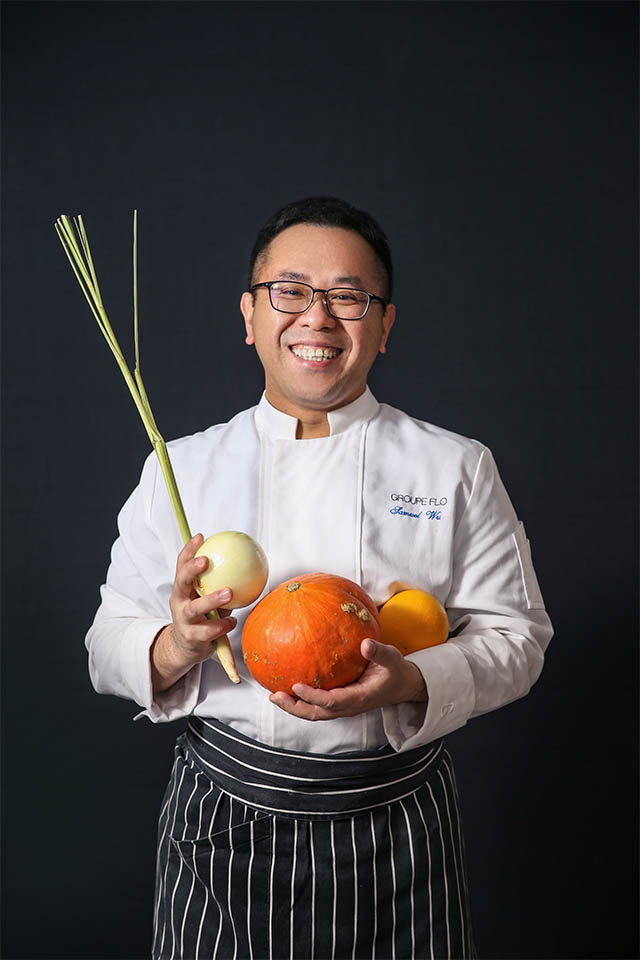
Wu Ruizhe is the executive chef of Brasserie Flo, a French restaurant in Beijing that specialises in traditional French dishes. Chef Wu learned his culinary skills in France and knew the most authentic French cooking methods and principles. His experience in working at multiple locations around the globe has allowed him to gain the ability to use local produce to present traditional flavours.
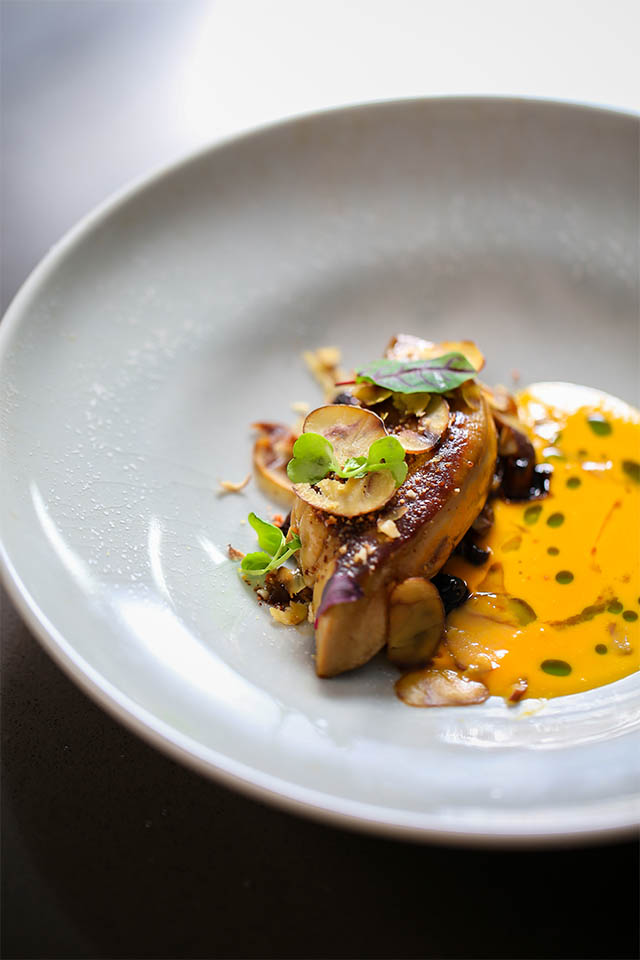
Chef Wu created an innovative dish that is based on the classic recipe but borrowing from local produce and meeting local demands. The rich flavour of buttery foie gras is balanced out by sweet and sour ingredients. Traditionally, raspberry or strawberry jams will be used. Chef Wu created a sweet orange oil by pressing orange peel and oil under low temperature and air-tight environment to fully infuse the oil with the sweet scent of orange. Lemongrass was also used for this dish, an Asian ingredient, which added a unique underlying flavour to the overall flavour profile of the dish. This was such a pleasant surprise that showcased what a chef can do by taking tradition and put a modern spin on top.

Chefs are artists of the food industry. They pass on traditions and create innovations, so they can present great food that can genuinely touch hearts. Shinho's brand for professional chefs WEI DA MEI will attend the Beijing Michelin Guide launch ceremony on November 28. We invited artists to design Shinho's display to combine art and food. What surprises will these four chefs and the artist bring for us? Let's wait and see!

